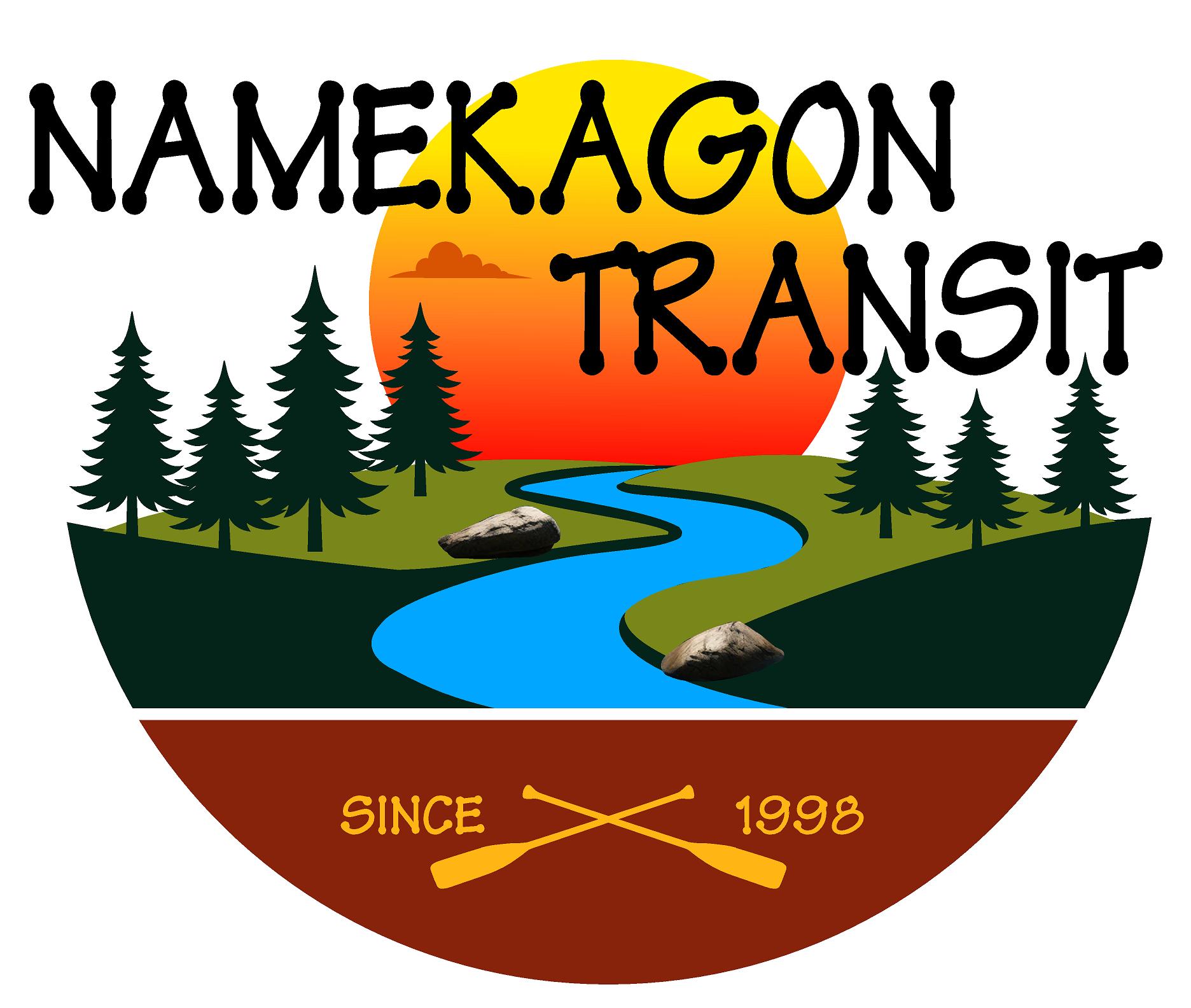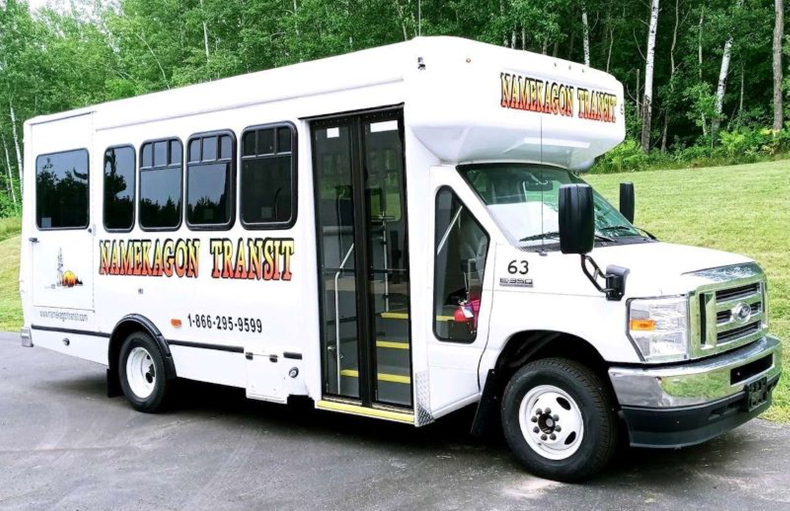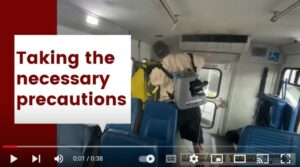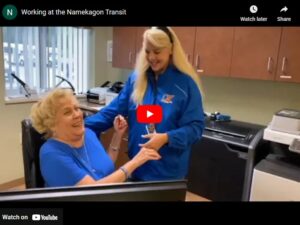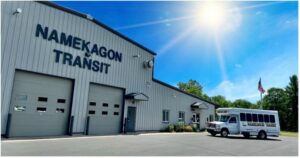General Information
Make your rides safer & stress-free, while helping everyone breathe easier! Leave your car at home
and let us do the driving. There’s no need to worry about traffic hassles or problems on the road.
One full bus can take 14 single-occupant vehicles off the road and eliminate 90 percent of the
vehicles’ toxic emissions. Using Namekagon Transit is a great way to relax knowing that the bus is
one of the safest and cleanest ways to travel.
Reduced Energy Consumption
The fuel efficiency of public transit compared to the average commuter auto:
o 1 bus with 7 passengers = 1 auto
o 1 full bus = 6 autos
o A transit bus uses 8.7% less energy per passenger mile than a typical auto.
o Public transit reduces fuel consumption by about 1.5 billion gallons annually.
Increased Economic Benefits
Riding the bus lowers your family’s commuting costs. A typical household with two cars spends 16
cents of every dollar on transportation. 93% of this goes to car maintenance; this is the largest
expenditure after housing. Cars require fuel, regular check-ups, insurance, taxes, seasonal adjustments
and more, which are expensive and time-consuming. As of 2024, riding Namekagon Transit Deviated
Fixed Routes costs roughly $1,560 per year (riding twice a day at $3 per trip for an average of 260
workdays a year)!
The American Public Transit Association estimates that for every $1 invested in transit, business
revenues increase $3 to $3.50 nationwide. The Federal Transit Administration estimates that the 80
million Americans who live in transit-intensive metropolitan areas save $20 billion in auto costs
each year.
Less Traffic Congestion Less Stress
Another health impact of increased public transit usage on a personal level is reducing stress related to
driving in heavy traffic. Risky situations, rude drivers, sitting in congestion while late for work – these are
scenarios that we are all too familiar with. Public transportation takes this burden off people’s shoulders
and gives them the free time they can choose how to use – to read a book, chat with friends, just relax
and enjoy the ride.
Convenience/Independence
Ten million Americans use transit each working day. Another 25 million Americans use transit less
frequently but on a regular basis. Americans depend on transit:
o 32 million senior citizens increasingly rely on public transit as their driving ability decreases
with age.
o 24 million people with disabilities need public transit to maintain their independence.
o 37 million people living below the poverty line often cannot afford a car and rely on public
transit to reach their jobs.
Safer Travel
Public transit is one of the safest methods of passenger travel, according to the National Safety
Council. The average death rates per 100 million passengers are as follows:
For example, the death rate for passenger vehicles is over 50 times higher than buses, 17 times
higher than passenger trains, and 1,000 times higher than scheduled airlines.
Mode Death Rate
Automobiles .50
Commuter Railroads 0.17
Airlines 0.02
School Buses 0.01
Transit Buses 0.01
* Excerpted from the American Public Transit Association’s (APTA’s) “Transit Fact Book”.
